Table of Contents
ANTONIO CARLOS “TOM” JOBIM – TRISTE (Guitar arr. TAB SHEET MUSIC, partitura)
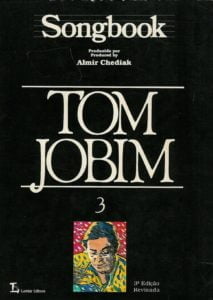
Lyrics:
Triste é viver na solidão
Na dor cruel de uma paixão
Triste é saber que ninguém
Pode viver de ilusão
Que nunca vai ser nunca vai dar
O sonhador tem que acordar
Tua beleza é um avião
Demais p’rum pobre coração
Que pára pra te ver passar
Só pra me maltratar
Triste é viver na solidão
Best Sheet Music download from our Library.
‘Triste’ (meaning ‘Sad’ in English) is a bossa nova song composed in 1966 by Antônio Carlos Jobim, who also wrote the lyrics in English and Portuguese.
Background
Jobim wrote the song in late 1966 while staying at the Sunset Marquis Hotel in Los Angeles, while waiting for Frank Sinatra to return from a vacation in Barbados to begin recording his album Francis Albert Sinatra & Antônio Carlos Jobim (1967).
The first recording of the song was an instrumental version by Jobim for his 1967 Wave album. Sinatra recorded it with Jobim two years later in the sessions for his planned second album, SinatraJobim, which was eventually released as Sinatra & Company’s Side A (1971).
Jobim recorded an English vocal version in 1980 on the album Terra Brasilis.
Antonio Carlos Jobim
Antônio Carlos Brasileiro de Almeida Jobim (January 25, 1927 – December 8, 1994), also known as Tom Jobim was a Brazilian composer, pianist, composer, arranger, and singer. Considered one of the great exponents of Brazilian music, Jobim internationalized bossa nova and, with the help of leading American artists, fused it with jazz in the 1960s to create a new sound with popular success. As such, he is sometimes referred to as the ‘father of bossa nova’.
Jobim was a major force behind the creation of the bossa nova style, and his songs have been performed by many singers and instrumentalists internationally.
Please, subscribe to our Library.
If you are already a subscriber, please, check our NEW SCORES’ page every month for new sheet music. THANK YOU!
In 1965, the Getz/Gilberto album was the first jazz record to win the Grammy Award for Album of the Year. It also won for Best Jazz Instrumental Album – Individual or Group and for Best Engineered Album, Non-Classical. The album’s single ‘Garota de Ipanema’ (‘The Girl from Ipanema’), one of the most recorded songs of all time, won Record of the Year.
Jobim composed many songs that are now included in the standard jazz and pop repertoires. The song ‘Garota de Ipanema’ has been recorded more than 240 times by other artists.
His 1967 album with Frank Sinatra, Francis Albert Sinatra and Antônio Carlos Jobim, was nominated for Album of the Year in 1968.
Antônio Carlos Jobim was born in the middle-class district of Tijuca in Rio de Janeiro. His father, Jorge de Oliveira Jobim (São Gabriel, Rio Grande do Sul; 1889-1935), was a writer, diplomat, teacher and journalist.
He came from a prominent family, being the great-nephew of José Martins da Cruz Jobim, a senator, private councilor, and physician to Emperor Dom Pedro II. While studying medicine in Europe, José Martins added Jobim to his surname, paying homage to the town his family came from in Portugal, the parish of Santa Cruz de Jovim, Porto.
His mother, Nilza Brasileiro de Almeida (c. 1910-1989), was of partially indigenous descent from northeastern Brazil.
When Antônio was still a baby, his parents separated and his mother moved with her children (Antônio Carlos and his sister Helena Isaura, born February 23, 1931) to Ipanema, the beachside neighborhood that the composer would later would celebrate in their songs.
In 1935, when Jobim’s elder died, Nilza married Celso da Frota Pessoa (died February 2, 1979), who would encourage the career of her stepson. It was he who gave Jobim his first piano. As a young man of impoverished youth, Jobim made a living playing in nightclubs and bars and later as an arranger for a record label before beginning to achieve success as a songwriter.
Musical influences
Jobim’s musical roots were planted firmly in the work of Pixinguinha, the legendary musician and composer who pioneered modern Brazilian music in the 1930s. His teachers included Lúcia Branco and, beginning in 1941, Hans-Joachim Koellreutter, a German composer who lived in Brazil and introduced atonal and twelve-tone composition in the country.
Jobim was also influenced by French composers Claude Debussy and Maurice Ravel, and by Brazilian composers Ary Barroso and Heitor Villa-Lobos, who has been described as ‘Jobim’s most important musical influence’.
Among many topics, his lyrics talked about love, self-discovery, betrayal, joy, and especially about birds and the natural wonders of Brazil, such as the ‘Mata Atlântica’ forest, characters from Brazilian folklore, and his native city of Rio de Janeiro.
In the 1940s, Tom Jobim began playing the piano in bars and nightclubs in Rio de Janeiro, and in the early 1950s, he worked as an arranger at the Continental Studio, where he recorded his first composition, in April 1953, when Brazilian singer Mauricy Moura recorded Incerteza, a Tom Jobim composition with lyrics by Newton Mendonça.
Jobim rose to prominence in Brazil when he teamed up with poet and diplomat Vinicius de Moraes to write the music for the play Orfeu da Conceição (1956).
The most popular song on the show was ‘Se Todos Fossem Iguais A Você’ (‘If Everyone Were Like You’). Later, when the play was adapted into a film, producer Sacha Gordine did not want to use the play’s existing music. Gordine asked De Moraes and Jobim for a new score for the film Orfeu Negro, or Black Orpheus (1959). Moraes was at the time in Montevideo, Uruguay, working for the Itamaraty (the Brazilian Ministry of Foreign Affairs), so Jobim and he were only able to write three songs, mainly by phone (‘A felize’, ‘Frevo’ and ‘Frevo’). Or nosso love ‘).
This collaboration proved successful, and de Moraes went on to write the lyrics for some of Jobim’s most popular songs.
In 1958, the Brazilian singer and guitarist João Gilberto recorded his first album with two of Tom Jobim’s most famous songs: Desafinado and Chega de Saudade. This album inaugurates the Bossa Nova movement in Brazil. The sophisticated harmonies of his songs caught the attention of jazz musicians in the United States, mainly after Tom Jobim’s first performance at Carnegie Hall in 1962.
A key event in making Jobim’s music known in the English-speaking world was his collaboration with American jazz saxophonist Stan Getz, Brazilian singer João Gilberto, and Gilberto’s wife at the time, Astrud Gilberto, resulting in two albums, Getz/Gilberto. (1963) and Getz/Gilberto Vol. 2 (1964).
The release of Getz/Gilberto created a bossa nova craze in the United States and later internationally. Getz had previously recorded Jazz Samba with Charlie Byrd (1962) and Jazz Samba Encore! with Luiz Bonfa (1964). Jobim wrote many of the songs on Getz/Gilberto, which became one of the best-selling jazz albums of all time, and turned Astrud Gilberto, who sang on ‘Garota de Ipanema’ (The Girl from Ipanema) and ‘ Corcovado’, into an international sensation.
At the 1965 Grammy Awards, Getz/Gilberto won the Grammy Award for Album of the Year, the Grammy Award for Best Jazz Instrumental Album, Individual or Group, and the Grammy Award for Best Non-Classical Engineered Album. ‘The Girl from Ipanema’ won the Grammy Award for Record of the Year. Among his later successes is ‘Águas de Março’ (Waters of March 1972), for which he wrote lyrics in both Portuguese and English, and which was later translated into French by Georges Moustaki (Les Eaux de Mars, 1973 ).
In early 1994, after finishing his Antonio Brasileiro album, Jobim complained to his doctor, Roberto Hugo Costa Lima, of urinary problems. He underwent surgery at Mount Sinai Hospital in New York City on December 2, 1994.
On December 8, while recovering from an operation, he suffered a cardiac arrest caused by a pulmonary embolism and two hours later, another cardiac arrest, from which he died. .
He was survived by his children and grandchildren. His last album, Antonio Brasileiro, was released posthumously three days after his death.
His body remained in state until he was duly buried on December 20, 1994. He is buried at the Cemitério São João Batista in Rio de Janeiro.
Jobim’s Legacy
Jobim is widely considered to be one of the most important composers of the 20th century. Many of his songs are jazz standards.
American jazz singers Ella Fitzgerald and Frank Sinatra featured Jobim’s songs on their albums Ella Abraça Jobim (1981) and Francis Albert Sinatra & Antônio Carlos Jobim (1967), respectively. The 1996 CD Wave: Antonio Carlos Jobim’s Songbook included performances of Jobim themes by Oscar Peterson, Herbie Hancock, Chick Corea, and Toots Thielemans.
Jobim was an innovator in the use of sophisticated harmonic structures in popular songs. Some of his melodic turns, like the melody that he insists on the major seventh of the chord, became common in jazz after he used them.
Brazilian collaborators and performers of Jobim’s music include Vinicius de Moraes, João Gilberto (often credited as co-creator or creator of bossa nova), Chico Buarque, Edu Lobo, Gal Costa, Elis Regina, Sérgio Mendes, Astrud Gilberto and Flora Purim, Eumir Deodato and conductor/composer Claus Ogerman arranged many recordings of Jobim’s tunes.
He won a Lifetime Achievement Award at the 54th Grammy Awards in 2012. As a posthumous tribute, on January 5, 1999, the Municipality of Rio de Janeiro changed the name of Rio’s Galeão International Airport, located on Governador Island, to bear the name of the composer. Galeão airport is explicitly mentioned in his composition ‘Samba do Avião’. In 2014, Jobim was posthumously inducted into the Latin Songwriters Hall of Fame.
In 2015, Billboard named Jobim one of the 30 most influential Latin artists of all time. [twenty-one]
American contemporary jazz singer Michael Franks dedicated his 1995 album Abandoned Garden to Jobim’s memory. English singer-songwriter George Michael frequently acknowledged Jobim’s influence. His 1996 album Older was dedicated to Jobim, and he recorded ‘Desafinado’ on Red Hot + Rio (1996) with Astrud Gilberto.
The official mascot of the 2016 Summer Paralympics in Rio de Janeiro, Tom, was named after him.
Discography and compositions
| Studio Albums: 1963: El compositor de Desafinado, juega ( Verve )1965: El maravilloso mundo de Antônio Carlos Jobim ( Warner Bros. Records )1966: Amor, cuerdas y Jobim ( Warner Bros. Records )1967: Un cierto señor Jobim ( Warner Bros. Records )1967: Ola ( CTI / A&M )1970: Marea (A&M)1970: Flor de piedra (CTI)1973: Jobim ( MCA )1976: Urubu (Warner Bros.)1980: Terra Brasilis (Warner Bros.)1987: Passarim (Verve)1995: Antônio Brasileiro ( Colombia )1995: Inédito ( Ariola )1997: Minha Alma Canta (Lumiar) |
Cooperations:
- 1954: Sinfonia do Rio de Janeiro (Continental), con Billy Blanco
- 1956: Orfeu da Conceição (Odeón), con Vinicius de Moraes
- 1957: “O Pequeno Príncipe” (Festa), audiolibro del que Jobim compuso la banda sonora
- 1961: Brasilia – Sinfonia Da Alvorada (Colombia), con Vinicius de Moraes
- 1964: Getz / Gilberto (Verve)
- 1964: Caymmi Visita Tom (Elenco / Polygram / Philips ), con Dorival Caymmi
- 1967: Francis Albert Sinatra y Antônio Carlos Jobim (Reprise)
- 1974: Elis & Tom ( Philips ), con Elis Regina
- 1977: Miúcha & Antônio Carlos Jobim ( RCA ), con Miúcha
- 1979: Miúcha & Tom Jobim ( RCA ), con Miúcha
- 1981: Edu & Tom ( Philips ), con Edu Lobo
- 1983: Gabriela ( RCA ), banda sonora original de la película “Gabriela, Cravo e Canela”
Browse in the Library:
| Artist or Composer / Score name | Cover | List of Contents |
|---|---|---|
| The Tom And Jerry Show – Hiromi Uehara (Piano Solo Sheet Music) (Musescore File).mscz | ||
| The Tommy Flanagan Collection |
 |
The Tommy Flanagan Collection |
| The Truman show – Dreaming Of Fiji – Philip Glass |
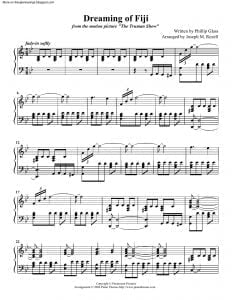 |
|
| The Truman show – Reunion – Philip Glass | ||
| The Truman show – Truman Sleeps – Philip Glass | Truman sleeps | |
| The Trumanshow – Dreaming Of Fiji – Philip Glass | ||
| The Trumanshow – Truman Sleeps – Philip Glass | ||
| The Ultimate Fake Book 2nd Edition for keyboard, vocal, guitar and all C inst. |
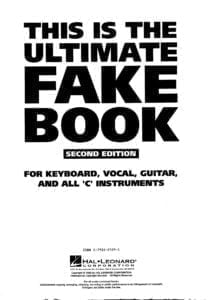 |
The Ultimate Fake Book 2nd Edition for keyboard, vocal, guitar and all C inst |
| The Ultimate Gospel Choir Book Vol4 |
 |
The Ultimate Gospel Choir Book Vol4 |
| The Ultimate Pop Rock Fake Book A-Z (ebook) |
 |
The Ultimate Pop Rock Fake Book A-Z (ebook) |
| The Ultimate Pop Rock Fake Book Joel Withburn |
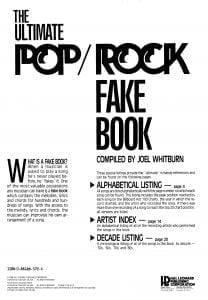 |
The Ultimate Pop Rock Fake Book Joel Withburn |
| The Untouchables – Main Title – Morricone (Musescore File).mscz | ||
| The Used – Smother Me | ||
| The Utimate Broadway Fake Book |
 |
The Utimate Broadway Fake Book – Hal Leonard |
| The Very Best Of John Williams – Dan Coates arr. easy piano |
 |
The Very Best Of John Williams – Dan Coates arr. easy piano |
| The Very Best Pop Songs Of All Time 19 of the best-ever pop songs Piano voica and guitar chords |
 |
The Very Best Pop Songs Of All Time |
| The Village – The Gravel Road – James Newton Howard | ||
| The Visible And Invisible In Pianoforte Technique (By Tobias Matthay) (1947) |
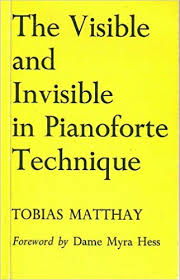 |
|
| The way we were – Barbara Streisand | The way we were – Barbara Streisand | |
| The Way We Were – Piano And Vocal (Musescore File).mscz | ||
| The Way We Were – Piano and vocal Barbra Streisand | The Way We Were – Piano and vocal | |
| The Way We Were (Lead sheet with Guitar chrods and lyrics ) |
 |
|
| The Way We Were (Lead Sheet With Lyrics ) (Musescore File).mscz | ||
| The Way We Were (Musescore File).mscz | ||
| The Wedding Night (Frankenstein OST) Patrick Doyle | ||
| THE WHO – The Who Anthology |
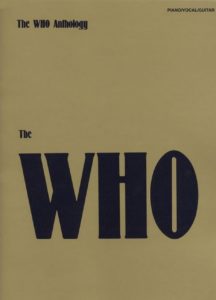 |
The Who Anthology Contents |
| The Who – Guitar Play Along Volume 108 WITH mp3 audio tracks with Tablature |
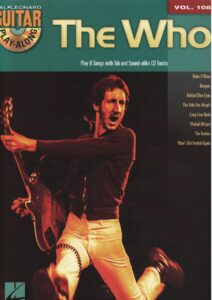 |
Guitar Play-Along Volume 108 – The Who |
| The Who – Tommy (Piano-Vocal-Guitar) |
 |
The Who – Tommy |
| The Who Rockscore |
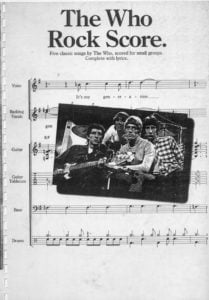 |
|
| The Who The Acoustic Guitar Collection Guitar Songbook TABs |
 |
The Who The Acoustic Guitar Collection Guitar Songbook TABs contents |
| The Who The Definitive Collection Volume A E Guitar TABs Songbook |
 |
The Who The Definitive Collection Volume A E Guitar TABs Songbook |
| The winner takes it all (Abba) | ||
| The Wizard of Oz – (Harold Arlen) Vocal & piano score |
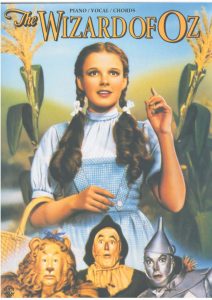 |
The Wizard of Oz – (Harold Arlen) -vocal.piano.score |
| The Wizard Of Oz The Musical by Andrew lloyd Webber |
 |
The Wizard Of Oz Musical Webber |
| The Wonder of Life (Afterwards OST) Alexandre Desplat | ||
| The Wonders – That Thing You Do | ||
| The Words And Music Of Frank Zappa By Kelly Fisher Lowe (Book) |
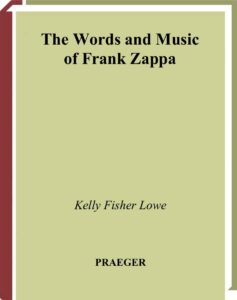 |
|
| The World Hits Of Oldies (Jazz Fake book) |
 |
|
| The World’s best music (Famous Compositions for Piano Vol. 1) 1904 | The world’s best music | |
| The World’s best music V Famous compositions for the piano |
 |
The World’s best music V Famous compositions for the piano |
| The World’s Greatest Fake Book |
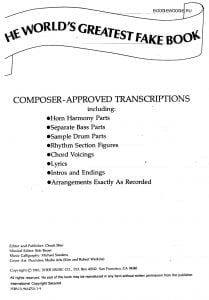 |
Greatest Fake Book |
| The Worlds best music I Famous compositions for the piano |
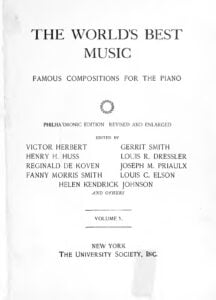 |
The Worlds best music I Famous compositions for the piano |
| The Yellow Rose Of Texas – Traditional (Musescore File).mscz | ||
| The Young Pianist’s Anthology Of Modern Music (1972) |
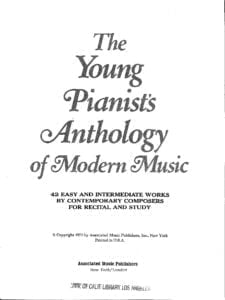 |
The Young Pianist’s Anthology Of Modern Music (1972) |
| The Zombies Songbook |
 |
|
| Thegogos – Head Over Heels | ||
| Thelonious Monk Compositions (as recorded by himself) | Thelonious Monk’s Compositions Fake Book – (Jazz) | |
| Thelonious Monk Blue Sphere |
 |
|
| Thelonious Monk easy piano solos Jazz |
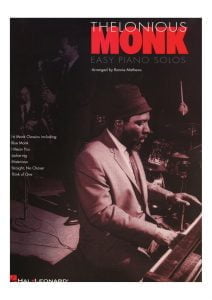 |
Thelonious Monk easy piano |
| Thelonious Monk – Japanese Folk song (Kojo No Tsuki) (sheet music transcription) |
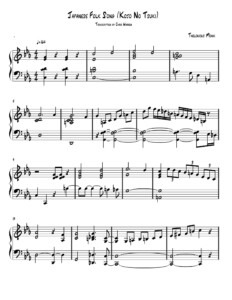 |
|
| Thelonious Monk – Jazz Masters |
 |
Thelonious Monk – Jazz Masters |
| Thelonious Monk – Originals and standards |
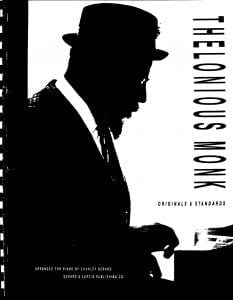 |
Thelonius Monk originals |
| Thelonious Monk – The Man I Love (solo) Gershwin |
 |
|
| Thelonious Monk & Cootie Williams – ‘Round Midnight | Thelonious Monk & Cootie Williams – ’round Midnight | |
| Thelonious Monk Collection | Thelonius Monk Collection | |
| Thelonious Monk Collection 12 Note For Note Solo Piano Transcriptions Artist Piano Transcriptions |
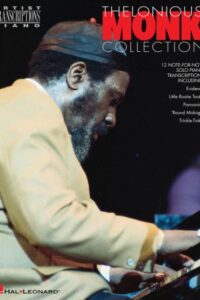 |
Thelonious Monk Collection 12 Note For Note Solo Piano Transcriptions Artist Piano Transcriptions |
| Thelonious Monk Compositions (as recorded by himself) | Thelonious Monk’s Compositions Fake Book – (Jazz) | |
| Thelonious Monk Fake Book | Thelonious Monk Fake Book | |
| Thelonious Monk Fake Book C Edition |
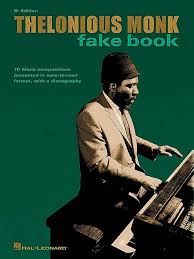 |
Thelonious Monk Fake Book C Edition |
| Thelonious Monk For Guitar with TABs |
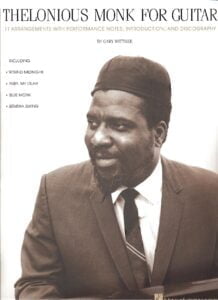 |
Thelonious Monk For Guitar |
| Thelonious Monk Intermediate Piano Solos Arranged By Ronnie Mathews 14 Arrangements |
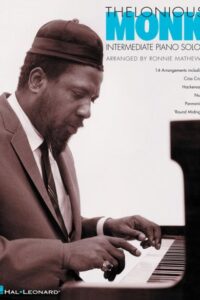 |
Thelonious Monk Intermediate Piano Solos Arranged By Ronnie Mathews 14 Arrangements |
| Thelonious Monk Jazz Piano Collection |
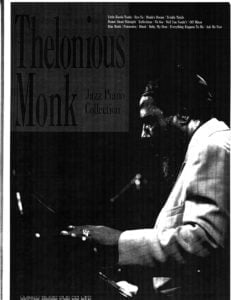 |
Thelonious Monk Jazz Piano Collection |
| Thelonious Monk Jazz Piano Solos Series Volume 49 |
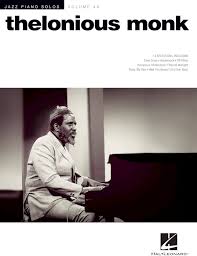 |
Thelonious Monk Jazz Piano Solos Series Volume 49 |
| Thelonious Monk Omnibook for piano Transcribed exactly from his recorded solos |
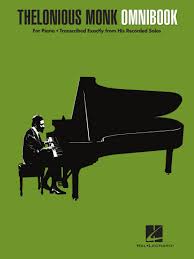 |
Thelonious Monk Omnibook for piano Transcribed exactly from his recorded solos |
| Thelonious Monk Plays Standards – Volume 1 Artist Transcriptions Piano 12 transcriptions |
 |
Thelonious Monk Plays Standards – Volume 1 Artist Transcriptions Piano 12 transcriptions |
| Thelonious Monk Plays Standards – Volume 2 Artist Transcriptions Piano 12 transcriptions |
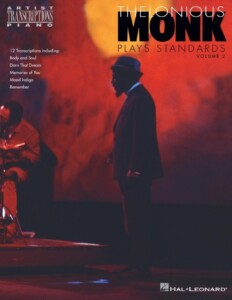 |
Thelonious Monk Plays Standards – Volume 2 Artist Transcriptions Piano 12 transcriptions |
| Thelonious Monk Quartet featuring John Coltrane at Carnegie Hall (Book) |
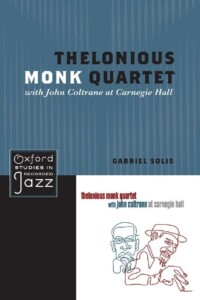 |
|
| Thelonious Monk Revealing Instincts Of The Genius Of Jazz Piano Originals |
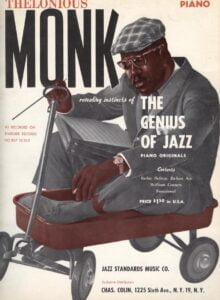 |
Thelonious Monk The Genius Of Jazz |
| Thelonious Monk Round Midnight Jazz Standard arr. Carsten Gerlitz |
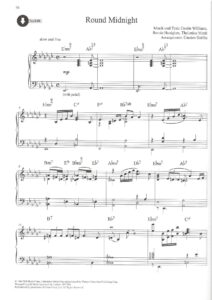 |
|
| Thelonious Monk Solo Transcriptions |
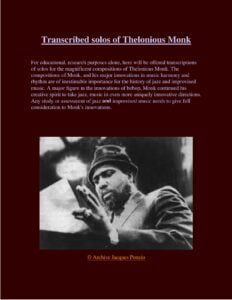 |
Thelonious Monk Solo Transcriptions |
| Thelonious Monk Tea For Two (piano solo transcription sheet music, partition) | Thelonious Monk Tea For Two (piano solo transcription sheet music, partition) | |
| Thelonius Monk – Monk’s Music and Jazz History in the making (Book) |
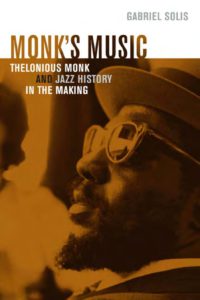 |
|
| Thelonius Monk – Thelonious transcription | Thelonius Monk – Thelonious transcription | |
| Theme de Charles (Un homme et son chien OST) Philippe Rombi | ||
| Thème de Jeanne – Le Diable par la Queue OST (Georges Delerue) | ||
| Thème de Jeanne – Le Diable par la Queue OST (Georges Delerue) trio version | ||
| Theme de Suzanne – Potiche OST (Philippe Rombi) | ||
| Theme from the Mermaid Chair (Secret Garden) | ||
| Theme From The Simpsons Jazz Play Along (Musescore File).mscz | ||
| Theodore Shapiro Diary Of A Wimpy Kid – Main Titles |
 |
|
| Theodore Shapiro Louder Than Thunder The Devil Wears Prada Theme Piano Solo Arr. |
 |
|
| Theodore Shapiro Severance Main Theme |
 |
|
| Theodore Shapiro Suite from The Devil Wears Prada Theme Piano Solo |
 |
|
| Theory Essentials An Integrated Approach To Harmony, Ear Training, And Keyboard Skills (Connie E. Mayfield) Book |
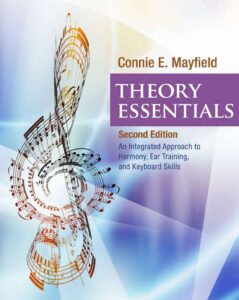 |
|
| Theory of Harmony – Arnold Schoenberg | Book Theory | |
| These Foolish Things Sheet Music Ella Fitzgerald |
 |
|
| Thinking In Jazz The Infinite Art of Improvisation Berliner, Paul (Book) 1994 |
 |
|
| This Is Halloween Easy Piano |
 |
|
| This Is Us Songbook Selections From The Television Series Soundtrack |
 |
|
| This Land Is Your Land (Guitar Chords) (Musescore File).mscz | ||
| This Land Is Your Land (Musescore File).mscz | ||
| This Little Light of Mine (African-American Spiritual) from The Best Children’s Songs Ever (Easy Piano) | This Little Light of Mine (African-American Spiritual) from The Best Children’s Songs Ever (Easy Piano) | |
| This Little Light of Mine (African-American Spiritual) from The Best Children’s Songs Ever (Easy Piano) Musescore file.mscz | ||
| Thomas Attwood Allegro First Movement From Sonatina No. 1 In G (Trinity Grade 2 Piano) |
 |
|
| Thomas Attwood – Allegro – First Movement from Sonatina No. 1 in G (Trinity Grade 2 Piano).mscz | ||
| Thomas Johnson READ AND PLAY New Series Grades II, III and IV Piano |
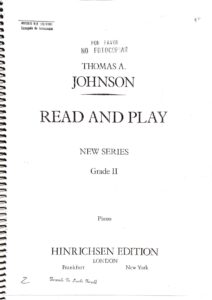 |
|
| Thomas Newman – Any Other Name (American Beauty Theme) | Thomas-Newman-Any-Other-Name-American-Beauty 1st page | |
| Thomas Newman – Road To Perdition – Road To Chicago |
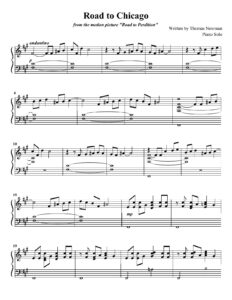 |
|
| Thomas Newman – Road To Perdition (Piano Solo) |
 |
|
| Thomas Newman – Road To Perdition Theme – Guitar Tabs |
 |
|
| Thomas Newman – The Horse Whisperer – Montana | Thomas Newman – The Horse Whisperer – Montana | |
| Thomas Newman – The Horsewisperer – The Vast Continent |
 |
|
| Thomas Newman – The Horsewisperer – Voice Of God | Thomas Newman – The Horsewisperer – Voice Of God | |
| Thomas Newman – The Shawshank Redemption – Stoic Theme |
 |
|
| Thomas Newman Forbidden Love (Meet Joe Black) | ||
| Those Were The Days (Musescore File).mscz | ||
| Those Were The Days Russian Traditional Jazzy Version | Those Were The Days Russian Traditional Jazzy Version | |
| Three Coins In The Fountain 1954 by Jule Styne and Sammy Cahn |
 |
|
| Three Days Grace – Never Too Late | ||
| Tidus And Yuna’s Theme (Musescore File).mscz | ||
| Tifa’s Theme (Final Fantasy VII Piano Collections) |
 |
|
| Tifa’s Theme Final Fantasy Vii Piano Collections (Musescore File).mscz | ||
| Tim Minchin – Miracle (Matilda the Musical) | Tim Minchin – Miracle (Matilda the Musical) | |
| Tim Minchin – Prejudice (Musical Comedy) Piano Sheet Music | Tim Minchin – Prejudice (Musical Comedy) Piano Sheet Music | |
| Tim Richards Improvising blues piano (PDF + MP3 audio tracks) |
 |
Improvising Blues Piano (with audio Mp3) |
| Tim Richards – Exploring Jazz Piano Vol. 1 (with MP3 audio tracks) |
 |
Tim Richards Exploring Jazz Piano 1 |
| Tim Richards – Exploring Jazz Piano Vol. 2 (with MP3 audio tracks) |
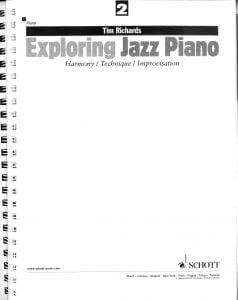 |
Exploring jazz piano 2 |
| Tim Richards – Exploring Latin Piano (with audio MP3) |
 |
Tim Richards – Exploring Latin Piano |
| Tim Smith Cardiacs All Spectacular Piano Solo |
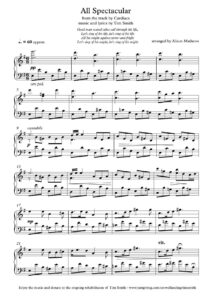 |
|
| Tim Smith Cardiacs Savour Piano Solo |
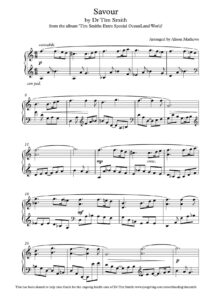 |
